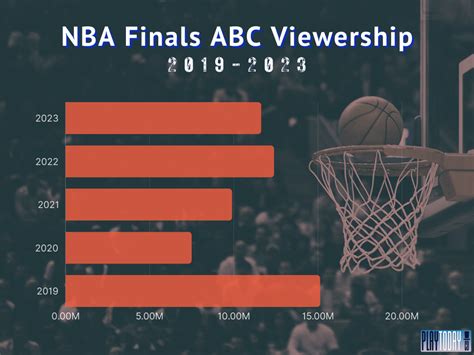
Bryce Harper acknowledged heightened concern among Philadelphia Phillies fans following the team’s recent struggles, stating, “Of course, everybody’s worried.” His comments come amid a stretch of inconsistent play that has sparked debate and anxiety among the Phillies faithful, raising questions about the team’s trajectory and playoff aspirations.
Philadelphia Phillies superstar Bryce Harper has acknowledged the growing anxieties of the team’s fanbase following a period of uneven performance. In a recent interview, Harper addressed the palpable apprehension, stating unequivocally, “Of course, everybody’s worried,” as the Phillies navigate a crucial juncture in the season. This acknowledgment from one of the team’s leaders underscores the mounting pressure both on and off the field as Philadelphia aims to solidify its position in the playoff race.
Harper’s candid remarks reflect a broader sentiment surrounding the Phillies’ recent performance. While the team boasts considerable talent and high expectations, inconsistency has plagued their efforts, leading to a sense of unease among supporters who harbor World Series aspirations. The comments, aired on various sports outlets, have quickly become a focal point of discussion among fans and analysts alike, prompting deeper examination into the factors contributing to the team’s challenges.
The statement, while brief, carries substantial weight given Harper’s stature within the organization and his connection with the city. As the Phillies’ highest-profile player, his words resonate deeply with a passionate fanbase that demands success. The admission of worry hints at a shared understanding of the current situation and the urgent need for improvement.
The context surrounding Harper’s statement is rooted in the Phillies’ performance over the past several weeks. While they have demonstrated flashes of brilliance, these moments have often been interspersed with frustrating losses and inconsistent play, particularly in key situations. This inconsistency has raised questions about various aspects of the team, including pitching depth, offensive firepower, and overall team cohesion.
Furthermore, the heightened concern among fans is fueled by the competitive nature of the National League East division, where the Phillies face stiff competition from formidable rivals such as the Atlanta Braves and the New York Mets. Every game carries significant weight in the standings, and any prolonged period of struggle can have substantial implications for playoff positioning.
The Phillies’ struggles are multifaceted. Offensively, while the team possesses considerable power, they have sometimes struggled to string together consistent at-bats and capitalize on scoring opportunities. Key players have experienced periods of slump, and the lineup has, at times, lacked the depth necessary to withstand injuries or underperformance from its stars.
The pitching staff, while showing promise, has also encountered challenges. Injuries to key starters have strained the rotation, and the bullpen has, on occasion, struggled to maintain leads or close out games. The lack of consistent performance on the mound has further contributed to the overall sense of unease.
Defensively, the Phillies have also had moments of vulnerability. Errors and misplays have proven costly in several games, underscoring the need for greater consistency and attention to detail across the board.
Harper’s acknowledgment of fan concerns serves as a call to action for the team. It emphasizes the importance of addressing the issues that have contributed to the recent struggles and underscores the need for a collective effort to turn things around. As a leader, Harper’s words are likely intended to galvanize the team and reinforce the shared goal of achieving sustained success.
The reaction to Harper’s comments has been varied. Some fans have praised his honesty and willingness to acknowledge their concerns, while others have viewed it as a sign of pressure and internal struggles within the team. Analysts have offered a range of perspectives, with some emphasizing the need for patience and others calling for more drastic changes to address the team’s deficiencies.
Regardless of the specific reactions, Harper’s statement has undoubtedly amplified the sense of urgency surrounding the Phillies. The team now faces increased scrutiny and pressure to demonstrate tangible improvement in the weeks and months ahead. The performance of key players, the effectiveness of the coaching staff, and the overall team dynamic will all be closely monitored as the Phillies strive to meet the lofty expectations that have been set for them.
The situation is further complicated by the long-term implications for the franchise. The Phillies have invested heavily in their roster, committing significant resources to acquire and retain top-tier talent. The success or failure of this investment will have far-reaching consequences for the team’s future, impacting everything from ticket sales to sponsorship revenue to the overall perception of the organization.
In light of these factors, the Phillies’ response to the current challenges will be critical. The team must find a way to overcome the obstacles they face, both on and off the field, and demonstrate the resilience and determination necessary to achieve their goals. This will require strong leadership, effective communication, and a commitment to continuous improvement across all aspects of the organization.
Ultimately, the Phillies’ success will depend on their ability to harness their collective talent and address the underlying issues that have contributed to their recent struggles. Harper’s acknowledgment of fan concerns serves as a reminder of the high stakes involved and the importance of delivering consistent, winning baseball. The coming weeks and months will be a critical test of the team’s character and their ability to meet the expectations of a passionate and demanding fanbase.
The Phillies’ front office also faces pressure to make strategic decisions that could impact the team’s performance. This could involve exploring potential trades to bolster areas of weakness, adjusting the roster to better utilize existing talent, or implementing new strategies to improve team chemistry and performance.
The organization’s leadership must carefully evaluate all available options and make informed decisions that align with the team’s long-term goals. Any missteps could further exacerbate the situation and undermine the team’s chances of success.
The Phillies’ coaching staff, led by manager Rob Thomson, is also under scrutiny. Thomson must find ways to motivate his players, optimize their performance, and make effective in-game decisions that give the team the best chance to win. He must also foster a positive and supportive environment that allows players to thrive and reach their full potential.
Thomson’s ability to navigate the challenges facing the team and effectively manage the roster will be crucial to the Phillies’ success. His leadership will be tested in the coming weeks and months as the team strives to overcome adversity and achieve its goals.
The situation underscores the complex dynamics of professional sports, where performance is subject to constant scrutiny and pressure from fans, media, and ownership. The Phillies’ ability to navigate these challenges and deliver consistent results will ultimately determine their success in the long run.
In conclusion, Bryce Harper’s acknowledgment of fan concerns reflects the heightened pressure and expectations surrounding the Philadelphia Phillies. The team faces significant challenges in the coming weeks and months, and their ability to overcome these obstacles will be crucial to their success. The performance of key players, the effectiveness of the coaching staff, and the strategic decisions made by the front office will all be closely monitored as the Phillies strive to meet the lofty expectations of their passionate fanbase. The coming period represents a critical test of the team’s character and their ability to deliver consistent, winning baseball. The statement from Harper highlights the interconnectedness of the team, its fans, and the overall organization, underscoring the shared desire for success and the importance of collective effort in achieving that goal.
FAQ about Bryce Harper’s Comments and the Phillies’ Current Situation
1. What prompted Bryce Harper to acknowledge Phillies fans’ worries?
Bryce Harper’s acknowledgment stemmed from the Philadelphia Phillies’ recent inconsistent performance. The team, despite high expectations and a talented roster, has struggled to maintain consistent winning form, leading to palpable concern among the fanbase. This prompted media to question Harper, and his response reflected an awareness of this growing unease. He noted, “Of course, everybody’s worried,” recognizing the shared concern.
2. What specific performance issues have led to this heightened concern among Phillies fans?
Several factors have contributed to the heightened concern:
- Inconsistent Offense: While the Phillies possess powerful hitters, they have struggled to string together consistent at-bats and capitalize on scoring opportunities. Key players have experienced slumps, and the lineup’s depth has been questioned.
- Pitching Challenges: Injuries to key starting pitchers have strained the rotation. The bullpen has also struggled at times, failing to hold leads or close out games effectively.
- Defensive Lapses: Costly errors and misplays have occurred, highlighting the need for improved defensive consistency.
- Tough Division: The Phillies compete in a highly competitive National League East, facing strong rivals like the Atlanta Braves and New York Mets. Every game is crucial for playoff positioning.
3. How significant is Bryce Harper’s statement, considering his position within the Phillies organization?
Bryce Harper’s statement carries significant weight due to his stature as the Phillies’ highest-profile player and a key leader. His words resonate deeply with the passionate Philadelphia fanbase, who demand success. His acknowledgment of their worries demonstrates a shared understanding of the current situation and the urgent need for improvement. It serves as a call to action for the team, emphasizing the importance of addressing the issues contributing to their struggles.
4. What are some potential solutions or changes the Phillies could implement to address these concerns?
The Phillies could consider several potential solutions:
- Strategic Trades: The front office could explore trades to bolster areas of weakness, such as pitching depth or offensive consistency.
- Roster Adjustments: Re-evaluating the roster to better utilize existing talent and optimize lineup configurations.
- Improved Coaching Strategies: Implementing new strategies to enhance team chemistry, player motivation, and in-game decision-making.
- Focused Practice and Training: Intensifying practice and training efforts to address specific performance issues, such as defensive lapses and offensive inconsistency.
- Mental Fortitude Training: Focusing on mental toughness and resilience to help players perform under pressure and overcome slumps.
5. How is the Phillies organization as a whole responding to the rising fan anxiety and team struggles?
The Phillies organization is likely responding on multiple levels:
- Front Office Review: The front office is likely evaluating the team’s performance, identifying areas for improvement, and exploring potential roster moves or strategic adjustments.
- Coaching Staff Adjustments: The coaching staff, led by manager Rob Thomson, is working to motivate players, optimize performance, and make effective in-game decisions.
- Internal Communication: Open communication between players, coaches, and management is crucial to address concerns and foster a collaborative environment.
- Public Relations Management: The organization is likely managing public relations to reassure fans and maintain their support. This might involve increased communication, transparency, and emphasis on the team’s efforts to improve.
- Long-Term Planning: The organization is also focused on long-term planning, considering how to build a sustainable winning team for the future.
- Fan Engagement: The team must actively engage with fans by addressing their concerns and showing commitment to improving the team’s performance to regain their confidence and support.
- Investment in Resources: This includes investing in advanced training programs and technologies to improve the players’ skill sets.
- Data Analysis: Utilizing data analytics to identify player strengths and weaknesses to improve strategies.
- Scouting: Strengthening scouting networks to identify new talent that can strengthen the team and give a competitive edge.
- Player Health and Wellbeing: Focus on player health and wellbeing to minimize injuries and ensure peak performance.
Expanded Analysis of the Phillies Situation
The Philadelphia Phillies’ current predicament, underscored by Bryce Harper’s candid admission of fan concerns, represents a complex interplay of factors that extend far beyond mere on-field performance. It encompasses organizational dynamics, financial investments, and the weight of expectations in a city renowned for its passionate and demanding sports fanbase.
The Phillies’ ownership has demonstrated a willingness to invest heavily in player acquisitions, notably securing Harper himself with a massive contract. Other significant investments include Zack Wheeler, J.T. Realmuto, and Nick Castellanos. These moves signaled a clear intention to contend for championships and deliver sustained success to Philadelphia. However, the returns on these investments have been inconsistent, creating a sense of unfulfilled potential and fueling fan frustration.
The pressure to win in Philadelphia is immense. The city’s sports fans are known for their unwavering loyalty and high expectations. They demand not only winning records but also a team that embodies grit, resilience, and a commitment to excellence. This pressure can be both a motivator and a burden for players and coaches, adding another layer of complexity to the Phillies’ situation.
Manager Rob Thomson faces the daunting task of managing a roster filled with high-priced talent and navigating the intense scrutiny of the Philadelphia media and fanbase. He must balance the need to win games with the responsibility of developing young players and fostering a positive team environment. His ability to effectively manage the team’s personalities and maximize their collective potential will be crucial to the Phillies’ success. The constant monitoring of in-game decision-making can also impact his effectiveness.
The Phillies’ minor league system plays a critical role in the team’s long-term prospects. Developing talented young players who can contribute at the major league level is essential for sustained success. The organization must invest in scouting, player development, and coaching at all levels of the minor league system to ensure a pipeline of talent flowing to the major league team. The ability to identify, nurture, and integrate these young players into the Phillies’ roster will be a key factor in their future success.
The team’s analytics department also plays a crucial role, providing data-driven insights to inform player development, roster construction, and in-game strategy. The ability to effectively utilize data to identify player strengths and weaknesses, optimize lineup configurations, and make informed decisions on the field is becoming increasingly important in modern baseball.
Injuries have consistently plagued the Phillies over the years, disrupting team chemistry and hindering their ability to field a consistent lineup. The organization must prioritize player health and conditioning to minimize the risk of injuries and ensure that key players are available to contribute throughout the season. This includes investing in advanced training methods, rehabilitation programs, and medical staff.
The Phillies’ marketing and public relations efforts are also essential for maintaining fan support and generating revenue. The organization must actively engage with fans through social media, community events, and promotional campaigns. They must also be transparent about the team’s progress and address fan concerns in a timely and effective manner.
The team must create a positive and inclusive team culture that fosters collaboration, respect, and a shared commitment to excellence. This includes promoting diversity and inclusion, providing mentorship opportunities for young players, and creating a supportive environment where players feel valued and respected.
The competitive landscape of Major League Baseball is constantly evolving. The Phillies must stay ahead of the curve by embracing new technologies, scouting methods, and training techniques. They must also be willing to adapt their strategies and approaches to meet the challenges of a rapidly changing game. The integration of sports psychology plays an increasingly important role in enhancing player performance and resilience. By providing athletes with mental skills training, strategies for managing pressure, and tools for fostering a positive mindset, sports psychologists contribute to optimizing individual and team performance.
The financial aspects of the game are also significant. The Phillies must carefully manage their payroll and make strategic investments in player acquisitions and development. They must also maximize revenue through ticket sales, merchandise, and sponsorships. The financial health of the organization is essential for sustained success on the field.
The long-term success of the Philadelphia Phillies hinges on their ability to address these multifaceted challenges and create a sustainable winning culture. Bryce Harper’s acknowledgment of fan concerns serves as a catalyst for introspection and a renewed commitment to excellence. The organization must embrace a holistic approach that encompasses player development, coaching, analytics, marketing, and fan engagement. By addressing these factors, the Phillies can position themselves for sustained success and deliver the championships that their passionate fanbase craves.
The Phillies face immense pressure to balance short-term goals with long-term planning. While the immediate focus is on improving their current performance and contending for a playoff spot, the organization must also consider the long-term implications of their decisions. This includes developing young players, managing their payroll effectively, and building a sustainable winning culture that can endure for years to come. The team’s communication strategy is also critical. Clear and transparent communication between players, coaches, management, and fans is essential for building trust and fostering a sense of shared purpose. The organization must be proactive in addressing concerns, providing updates on the team’s progress, and engaging with fans through various channels.
The Phillies’ ability to adapt to changing circumstances and overcome adversity will be a key factor in their success. The baseball season is long and unpredictable, and the team will inevitably face challenges along the way. Their ability to bounce back from setbacks, learn from their mistakes, and stay focused on their goals will be crucial to their ultimate success. The community engagement and charitable work of the Phillies organization also contribute to their overall image and reputation. By supporting local causes and giving back to the community, the team can strengthen their bond with fans and create a positive impact beyond the baseball field. The leadership displayed by key players like Bryce Harper is essential for setting the tone and direction of the team. Harper’s willingness to acknowledge fan concerns and hold himself and his teammates accountable demonstrates a commitment to excellence and a desire to win. His leadership, both on and off the field, will be crucial to the Phillies’ success.
The dynamic between the coaching staff and the players is essential. A collaborative and respectful relationship can foster an environment where athletes feel supported, challenged, and empowered to perform at their best. Building trust and encouraging open communication can lead to better outcomes and a more cohesive team dynamic. Furthermore, fostering an environment of continuous improvement is important. Encouraging athletes to seek feedback, learn from mistakes, and consistently strive for growth can lead to higher levels of performance and a stronger team culture. In conclusion, the Philadelphia Phillies face a multifaceted challenge that requires a comprehensive approach encompassing player development, strategic decision-making, and a strong organizational culture. Bryce Harper’s acknowledgment of fan concerns underscores the urgency and the high expectations that come with playing in Philadelphia. The coming weeks and months will be critical as the Phillies strive to meet these expectations and achieve sustained success.









